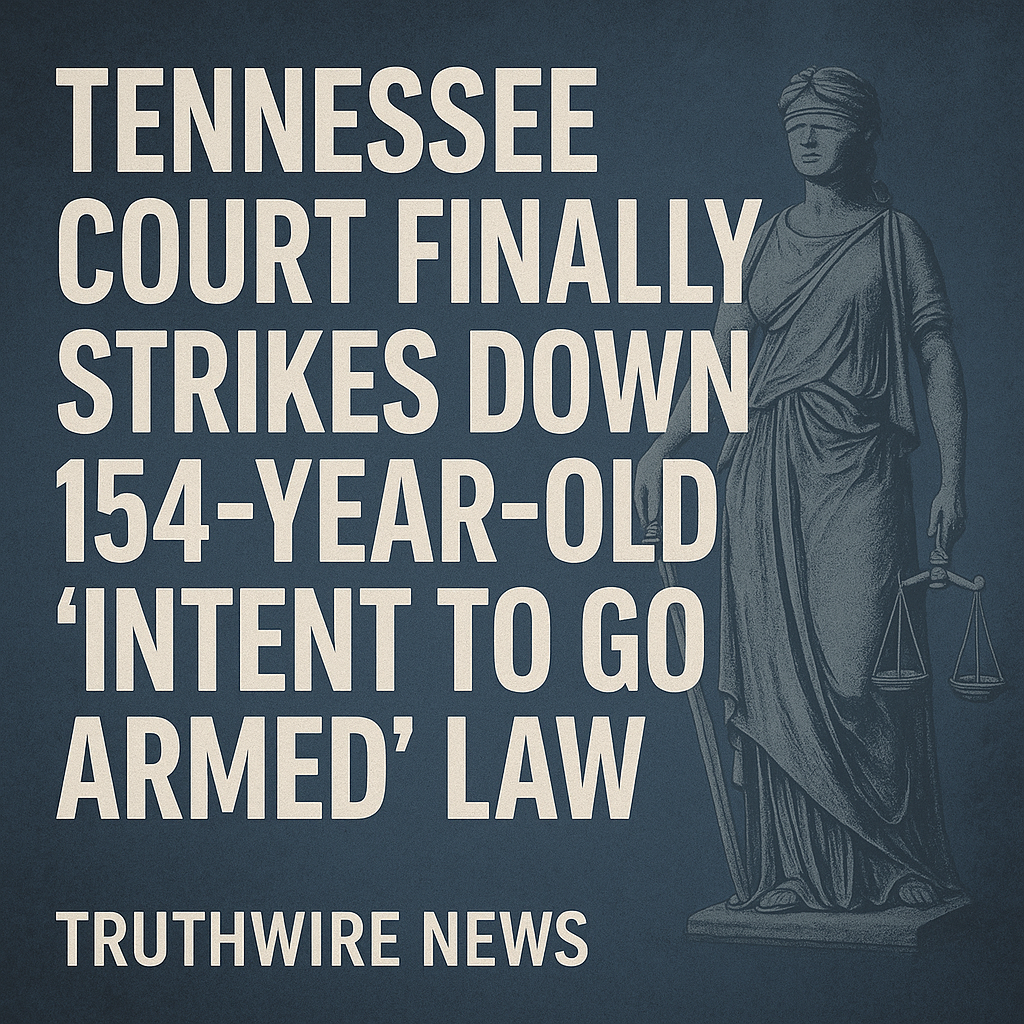On Aug. 22, a Tennessee three-judge panel struck down the state’s Jim Crow-era “intent to go armed” and parks gun bans. After 154 years—and despite GOP supermajorities blocking reform—constitutional rights were finally upheld.
By TruthWire News
On August 22, 2025, a three-judge panel in Gibson County issued a sweeping ruling that declared unconstitutional two of Tennessee’s most controversial gun laws: the state’s “intent to go armed” statute and its prohibition on firearms in public parks. The decision not only corrects a 154-year injustice but also underscores a sobering truth—despite 21 years of Republican control, including a 13-year supermajority, Tennessee’s legislature repeatedly refused to act, leaving it to the courts to protect citizens’ rights.
A Law Born in Jim Crow
The “intent to go armed” statute, Tenn. Code Ann. § 39-17-1307(a)(1), dates back to 1871. Crafted during the Reconstruction era, its purpose was clear: to prevent newly freed Black citizens from exercising their Second Amendment rights. By criminalizing the mere act of carrying a firearm “with the intent to go armed”—even on one’s own property—the law created a tool for arbitrary arrests and intimidation.
For generations, this provision allowed law enforcement to stop and detain anyone seen carrying a firearm. The burden fell on the citizen to prove in court that they were legally exempt. What should have been a guaranteed constitutional right was, in practice, treated as a privilege the state could rescind at will.




